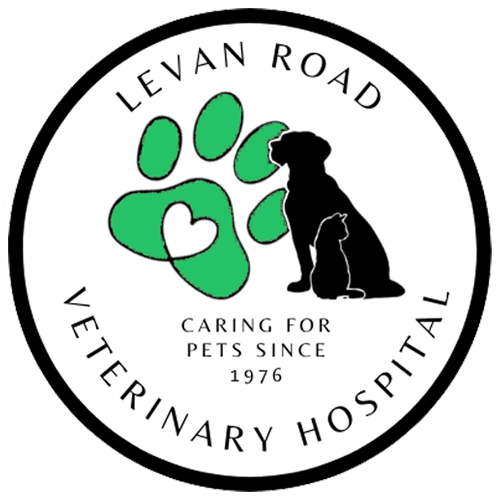Cat & Dog Teeth Cleaning is a Health
Essential for Your Companion
Your pet needs a cat or dog teeth cleaning and checkup at least once a year and should have their teeth brushed daily for optimal oral health. Good oral health is essential to your pet's overall health and increases the likelihood of them living a longer life.
Drs. Masell and Fleming have both attended specialty hands-on education for dentistry at the NAVC Institute in Orlando to further improve the quality of pet dental care we provide. We want your pet to enjoy life and go about their daily routine with ease, which is why we offer professional cat and dog teeth cleaning services to Livonia, MI and surrounding areas. Call us today at (734) 464-6281 and set up your next cleaning with one of our specialists.
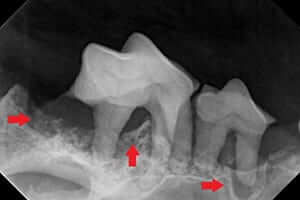
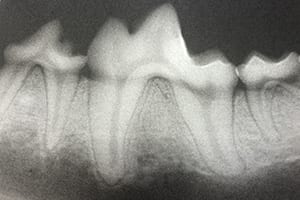
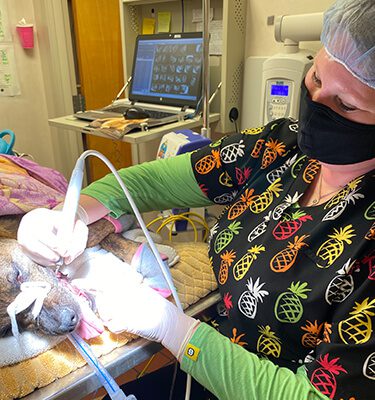
Signs Your Pet Has a Dental Problem
Poor oral health is not always obvious in dogs and cats, and your pet will likely try to hide it. However, there are common signs associated with dental problems that you can look out for, including:
- Bad breath
- Changes in behavior (i.e. sleeping more often, less interest in playing)
- Brown/yellow teeth
- Swollen and red gums
- Frequent and heavy drooling
- Swelling around the face and eyes
- Sores around the mouth or jaw
- Difficulty eating (sometimes)
- Pawing at the face and mouth
- Nasal discharge
Red and swollen gums can allow bacteria to enter the bloodstream and affect the heart, kidneys, and other major organs. It can also lead to dental pain. It is important to note that most dogs and cats with problem teeth will still eat and drink, but this does not mean they are not in pain or do not have dental disease. Please call for an appointment if you notice any of the above signs.
Reducing the Risk of Dental Disease with Professional Care
Levan Road Veterinary Hospital is equipped to offer pet dental care services ranging from routine dental scaling and polishing to oral surgery.
Our dental services include:
- Routine ultrasonic scaling and polishing of the teeth
- Application of protective sealant to further protect the teeth from plaque buildup
- Full-mouth digital dental X-rays
- Pre-anesthetic blood testing
- Minor extractions
- Major surgical extractions and oral surgery
- Dental nerve blocks as indicated for extractions
- Pain management before, during, and after the dental procedure as indicated, including post-procedure laser pain management
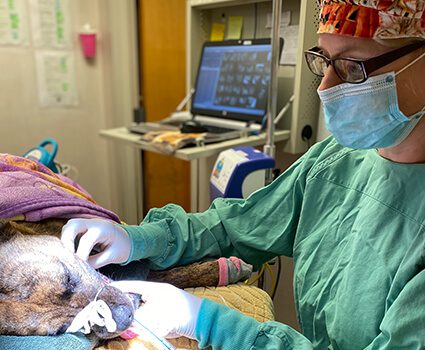
Does Brushing My Pet’s Teeth Really Help?
Yes! Your pet will benefit significantly from daily teeth brushing, which helps clear away food debris and prevents plaque from forming. You can also supplement your pet’s home care with a prescription diet to reduce buildup, along with dental chews and wipes for even better results. Contact us at (734) 464-6281 to discuss your pet’s dental health and decide on the best treatment for their needs.
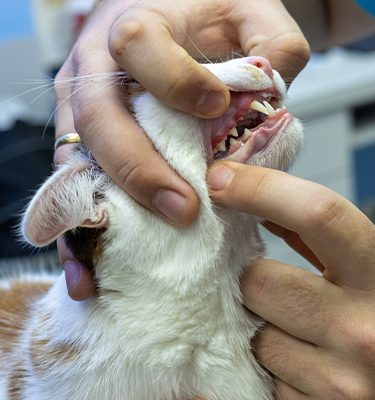
What Causes Dental Disease in Dogs and Cats?
Dental disease can start developing in dogs and cats as early as three years of age. Lack of dental hygiene is the main culprit. Over time, food debris stick to the teeth and gums, eventually turning into tartar on the tooth surface and hardening into calculus above and below the gum line. Tartar on the teeth may secrete infectious bacteria into the mouth, under the gums, and into your pet’s bloodstream. When infection occurs under the gums, this results in red, swollen gums, bad breath, and loose teeth. As the infection progresses, it causes the tissues supporting the teeth to deteriorate.
In a worst-case scenario, dental disease can result in diseases of the heart, liver, and/or kidneys in your pet, due to bacteria from their mouth entering the bloodstream and traveling to the major organs.
Brushing your pet’s teeth daily at home and coming into our hospital for regular oral checkups and teeth cleaning procedures will prevent these health problems in your pet, and potentially lengthen their lifespan.

